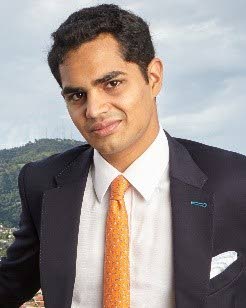Rescue the forgotten middle

kmmpub@gmail.com
We may be slowly prising our way out of the middle-income trap, but growth remains anaemic. Thousands of good jobs must still replace the thousands lost if our recent great recession is not to turn to a great stagnation. Young people especially. They’re looking for hope. They mustn’t be allowed to join the droves of the discouraged or the exodus abroad.
These jobs must come from somewhere. But where? The tendency is either to talk up big deals with multinationals; or to call in that folksy, fashionable way for more small businesses and vendors.
But the reality is that big business deals are few and far between, and small business simply is not as big a force as we have been made to think.
It is easy to exhort people to go out and become entrepreneurs, but this life is not for everyone. Most people would much rather a meaningful job that allows them to provide for their families. And the truth, unsexy as it is, is that apart from a few start-ups, most of these types of opportunities are created by mid-sized companies; especially when they can be boosted to grow.
It is not small businesses but high-growth businesses that are the true engine of growth.
Daniel Insenberg and the Harvard Business Review cite surprising statistics. In the US, high-impact firms represent just two or three per cent of all firms, but account for almost all growth in private-sector revenue and jobs. They are getting on, too. The average age of these firms is 25 years.
Researchers from Babson College call them “scale-ups,” and they are at the heart of development. The envied German productivity engine is powered by its strong cohort of mid-sized firms: the “Mittelstand.” Indeed, in Germany, Switzerland, New Zealand and the UK, fewer than 20 per cent of companies are small businesses.
The Colombian city of Manizales was one of the first to take a development approach based on these insights – with spectacular results. A town of 400,000 people, its economy depended on one commodity, coffee, and had collapsed in the eighties. Sound familiar?
Realising that growth could not come from small entrepreneurs alone, the town teamed up with the professors at Babson to set up a project that took existing medium-sized firms and helped them to grow.
The team advised the companies through a series of monthly workshops. In four years, 71 Manizales companies grew by about 35 per cent each, directly creating 1,291 new jobs, 1,451 new contracts and 12 new exporters.
How did this work? Growing a new company is different from starting one. The project managers were firm about their focus, rejecting some 200 start-up applicants in favour of existing – often family-run – businesses.
The team advised each of the companies on customers, cash (particularly financing) and capacity (particularly teams and equipment). They trained businesses on how to be bankable, and bankers on how to talk to businesses too wary of debt. Much of this advice was simple and practical. A bakery opened new stores and started hiring. A plastics subcontractor started making its own pet toys, hiring 25 new staff.
Local mentors were also crucial. The MIT Venture Mentoring Service identified and trained three dozen elite business mentors, who committed at least an hour a month of mentorship for three years.
In his MIT study documenting the project, Prof Daniel Isenberg boiled the process down to four steps. First: quickly demonstrate entrepreneurs’ new growth. Second: communicate that growth broadly. Third: engage bankers, policymakers and non-entrepreneur actors to invest resources in growth. And fourth: ensure that the programme has the staff and ability to sustain itself.
The programme and results have since been replicated in more than 15 other regions globally with no small success (though not all as dramatic as Manizales).
We have the chance to do the same here. Movements are already being made. Consultant Waltnel Sosa and the Babson Entrepreneurship Ecosystem Project are been working on a Scale-Up initiative for TT, with Inter-American Development Bank and US embassy backing. Several established family-run companies have already expressed interest.
Of course, sharing information and following outside advice will be tough for many founders who have built stable businesses from scratch. But our business community are nothing if not practical, and the programme’s past results speak for themselves.
This is a perfect project for the business community, the banks and the state to dive into. Many of us do live in the forgotten middle. We can be a force for growth to be reckoned with.
Kiran Mathur Mohammed is a social entrepreneur, economist and businessman. He is a former banker, and a graduate of the University of Edinburgh

Comments
"Rescue the forgotten middle"